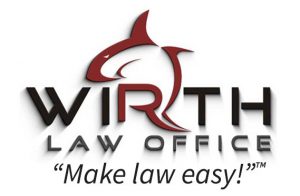 All jurisdictions work to protect their children. Children are among the most vulnerable people in our society. We strive to protect them from any act that could endanger them by passing laws prohibiting acts that can endanger them. Thus, the law prohibiting child endangerment is one such statute. It is a broad statute and is meant to cover a number of different types of situations. Here is what you need to know about child endangerment in Tahlequah.
All jurisdictions work to protect their children. Children are among the most vulnerable people in our society. We strive to protect them from any act that could endanger them by passing laws prohibiting acts that can endanger them. Thus, the law prohibiting child endangerment is one such statute. It is a broad statute and is meant to cover a number of different types of situations. Here is what you need to know about child endangerment in Tahlequah.
Child Endangerment In Tahlequah Defined
In Oklahoma, child endangerment encompasses a number of possible situations that can be dangerous for a child to be involved in. Legally, a child is an unmarried person under the age of 18. Okla. Stat. tit. 10A § 1-1-105
Child endangerment in Oklahoma is defined as knowingly permitting the physical or sexual abuse of a child, knowingly allowing a child to be present in a place where drugs are manufactured, knowingly permitting a child to be in a vehicle when the person knows or should know that the driver is under the influence of an intoxicant, or when the person is driving while intoxicated with a child in the vehicle. These acts are legally deemed to be injurious to the health and safety of a child. Okla. Stat. tit. 21 § 852.1
One of the most scenarios involving this law involves a DUI. If a person is driving under the influence with a child in the car, it is likely that person will be charged with child endangerment. Child endangerment is a felony in Tahlequah.
Another way this crime is often charged is in connection with drugs — especially the manufacturing of drugs, which tends to expose children to harmful chemicals and the risk of fire in some cases.
Elements Of The Crime
Every element of the crime must be proven by the prosecution beyond a reasonable doubt. If any element is left unproven, there can be no conviction for that crime. Here the elements that must be proven for a conviction of child endangerment.
- A parent, guardian, or person having custody or control of a child
- knowingly
- permitted
- the physical or sexual abuse
- of the child.
OR
- A parent, guardian, or person having custody or control of a child
- knowingly
- permitted
- the child to be present in a place where a controlled dangerous substance was being manufactured or was being attempted to be manufactured.
OR
- A parent, guardian, or person having custody or control of a child
- knowingly
- permitted
- the child to be present in a vehicle operated by a person who was impaired by or under the influence of alcohol or another intoxicating substance, and
- the parent or person having custody or control of the child knew or reasonably should have known that the operator of the vehicle was impaired by or under the influence of alcohol or another intoxicating substance.
OR
- A parent, guardian, or person having custody or control of a child
- was the driver or was in actual physical control of a vehicle, and
- was under the influence of alcohol or an intoxicating substance
- while the child was inside the vehicle.
OUJI-CR 4-40B
Defenses To Child Endangerment
If a person reasonably believes that an action to stop the physical or sexual abuse or deny permission for the child to be in the vehicle with an intoxicated person would result in substantial bodily harm to the child, that reasonable belief is an affirmative defense to a charge of child endangerment in Oklahoma.
Also, it is an affirmative defense to refuse medical treatment on the basis of a religious preference for the use of prayer as long as the refusal is made in good faith.
Penalties
Child endangerment is a felony in Tahlequah. It is punishable by up to four years in prison, a fine of up to $5,000, or both.
If you or a loved one are facing charges for child endangerment, speak to a Tahlequah attorney today.
Low-cost Initial Consultation: Tahlequah Criminal Defense Lawyer
Please contact a Tahlequah criminal defense lawyer to discuss your available legal options if you’ve been charged with child endangerment in Oklahoma.
For a low-cost consultation, call Wirth Law Office – Tahlequah at 918-458-2677 or toll-free at 1-888-447-7262.
Or, if you prefer e-mail, you may enter a legal question in the form at the top right of this page and we’ll contact you by e-mail as soon as possible.








